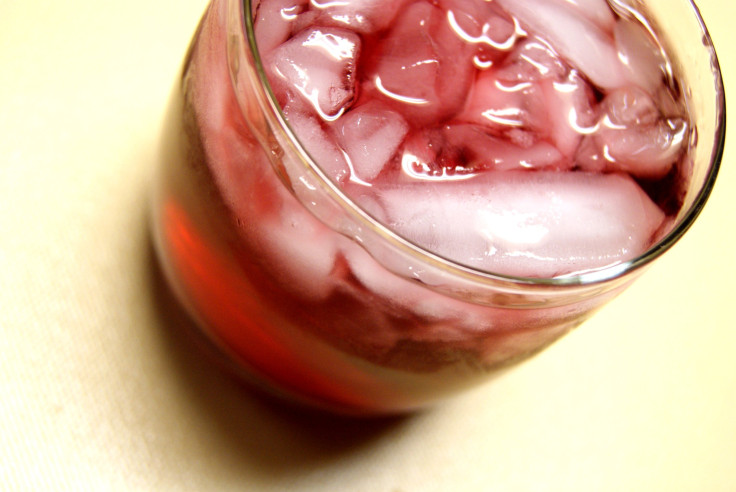The Benefits Of Cranberry Juice: 2 Cups A Day May Lower Heart Disease Risk

Heart disease is the leading cause of death in the United States, killing an estimated 610,000 people each year, the Centers for Disease Control and Prevention reported. Perhaps these numbers would be lower if people drank more cranberry juice — or at least that's what new research presented at the Cranberry Health Research Conference in Wisconsin on Monday suggested. The Cranberry Institute funded the study.
According to the National Institutes of Health, cranberries are rich in an antioxidant compound, called polyphenols that have been of great interest to researchers in the last 15 years. Of all the antioxidants, polyphenols show the greatest promise to not only help improve circulation, but to also improve kidney function, hormone delivery, and waste filtration. And as a plant-based nutrient (phytonutrient), cranberries could serve as a natural way to prevent poor heart health.
"Cranberry juice is a rich source of phytonutrients,” said the study’s lead author Dr. Ana Rodriguez-Mateos, a cardiology professor at the University of Duesseldorf in Germany, in a press release. "Due to this robust profile of polyphenols, our team sought to evaluate the immediate vascular impact of drinking...cranberry juice with a different range of concentrations of cranberry-polyphenols."
Rodriguez-Mateos and her team had ten healthy men between the ages of 18 to 40 drink just under two cups of sweetened cranberry juice (450 milliliters). Each juice was concentrated differently, ranging from 0 to 117 percent, where the amount of cranberries-to-water ratio increased with the concentration. To detect any changes, researchers took blood and urine samples at the start of the study, and again at hour one, two, four, six, and eight.
The samples showed incremental improvements in men's blood flow, arterial stiffness, and blood pressure over the course of 24 hours. All the cranberry juice concentrates, even the cocktail ones sold at local grocery stores made with 25 to 27 percent cranberry juice, had a positive effect. Because of how effective it was at improving blood flow, researchers believe it could lower the risk of atherosclerosis, a disease that occurs from a build up of plaque inside the arteries. Reduced blood flow "is a central feature in the development of atherosclerosis."
In 2013, researchers found similar benefits with cranberry sauce, in which the sauce was found to help protect against certain infections, decrease inflammation, and lower the risk of heart disease. Given that polyphenols are often consumed through fruits and vegetables, it would make sense that a higher intake could potentially protect against artery-clogging damage — but according to the Harvard School of Public Health, researchers can't say for sure if this powerful antioxidant is capable of fighting off disease on its own.
This study, however, would suggest we're a step closer to finding out.
"Our results lay the groundwork to better understand the array of potential vascular and cardiovascular health benefits of cranberry polyphenols," notes Rodriguez-Mateos said. "Significant improvements in vascular function from drinking two cups of cranberry juice suggest an important role for cranberries in a heart-healthy diet."
Source: Cranberry Health Research Conference. 2015.



























